The year was 1976, when my dad sat me down one Saturday evening and told me to watch a cowboy movie that was playing on one of the local television stations. I had no problem watching a Western, and I enjoyed the shootouts and horse chases these films usually featured. Secretly though, I would much rather have been watching a monster movie. So the movie started, and I slowly realized that maybe this wasn’t your usual run-of-the-mill Western when a tiny, prehistoric horse appeared on my television screen.
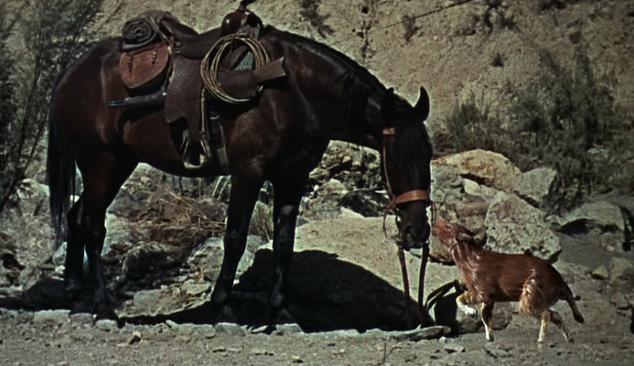
Twenty minutes later, my interest level increased ten-fold when a Pteranodon swooped into the screen and plucked a boy off of his horse. And then a few short minutes later, a bloodthirsty Allosaurus jumped onto the screen, gobbling up another dinosaur. At that point I was completely hooked. I couldn’t take my eyes off of the screen, and when the end credits appeared, I knew I had experienced something special. For that was the day I discovered the work of special effects wizard Ray Harryhausen.
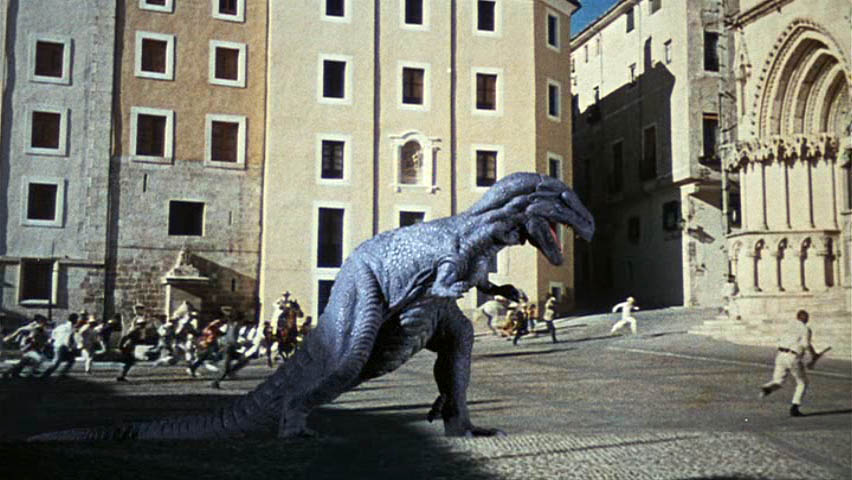
The film that blew me away, THE VALLEY OF GWANGI, is one of Harryhausen’s most impressive works, and remains a favorite among many of today’s special effects artists. Based on a story by Willis O’Brien about a band of adventurers and their discovery of a lost valley of dinosaurs, the plot is basically KING KONG (1933) set in the Old West, with Gwangi the Allosaurus replacing the mighty Kong, and Gwangi’s Forbidden Valley standing in for Skull Island. Arguably the film is technically better than KONG, as Ray’s dinosaurs are some of the most impressive stop -motion creations ever put on the screen.
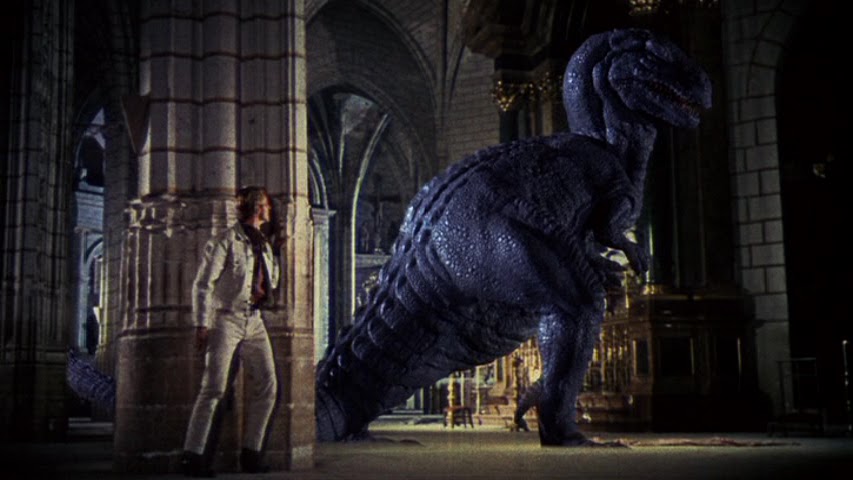
It’s hard to imagine that these creatures are only inches tall and created by just one artist, one frame of movement at a time. The creations in THE VALLEY OF GWANGI are amongst some of the most lifelike and fluid of Ray’s amazing career. The famous dinosaur round-up set piece, in which the cowboys try to lasso Gwangi, is a Harryhausen tour-de-force, and it remains one of the most impressive special effects sequences ever created, ranking right up there with the skeleton battle in JASON AND THE ARGONAUTS .
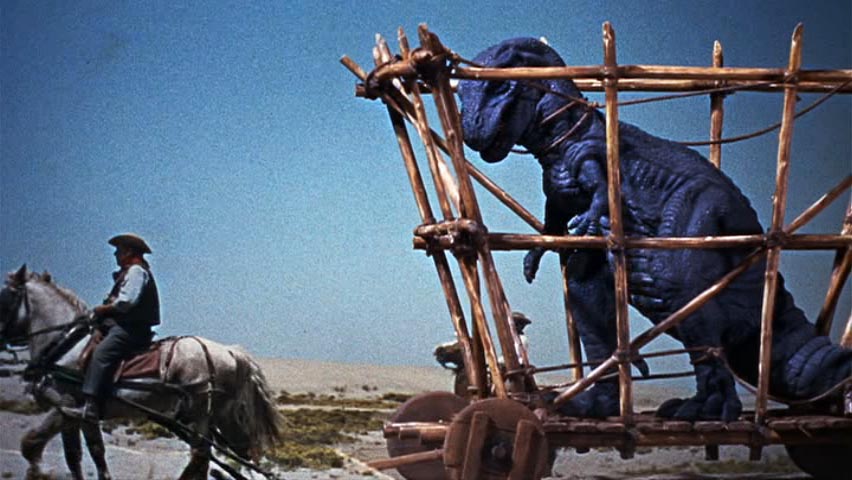
Harryhausen aside, the rest of the production is solid, or at least serviceable. On the acting front, James Franciscus, who has been referred to as a second-rate Charlton Heston (talk about an insult on top of an insult), does a fair job in the leading man slot, and Israeli actress Gila Golan is quite ravishing as his love interest.
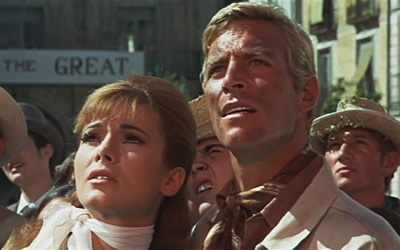
Creature feature fans will enjoy seeing monster fighter Richard Carlson back in a genre film. THE VALLEY OF GWANGI was his second-to-last feature; not a bad way to end a resume, after starring in such classics as IT CAME FROM OUTER SPACE and THE CREATURE FROM THE BLACK LAGOON. The rousing score by Jerome Moross is another highlight ,and probably the next best thing about the picture after Ray’s dinos, even if it is basically a copycat of the soundtrack he composed for THE BIG COUNTRY.
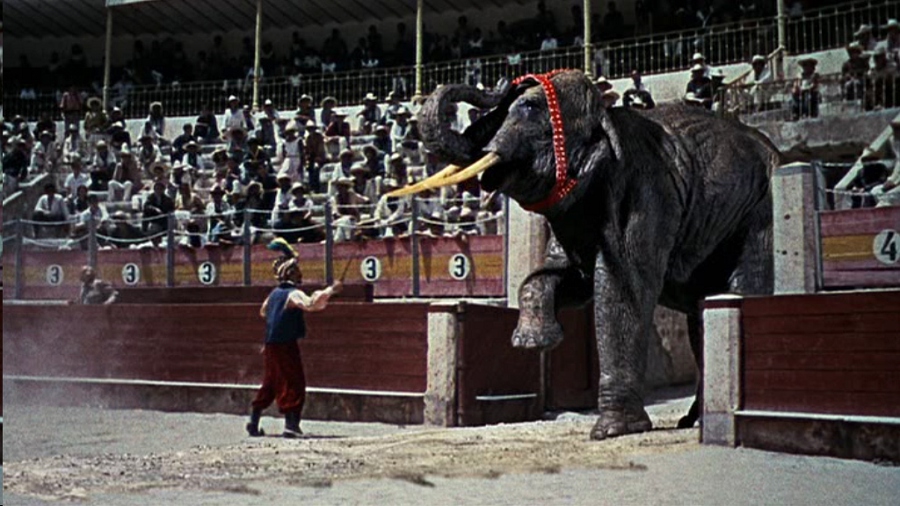
Sadly, the film wasn’t a hit when first released, as it was poorly marketed and was featured on a double bill with a biker film. Times were a-changin’ in Hollywood, and edgy films like BONNIE AND CLYDE and THE WILD BUNCH were creating tough competition for old fashioned film fare. Luckily for Harryhausen and for dinosaur fans, renewed interest in effects films in the late 1970s following the release of STAR WARS helped to bring this little gem into the light. I can safely state that the film is now recognized for the mini-classic that it is, and it stands as one of the greatest special effects films of all time.
— MAC BELL.


Tags: Allosaurus, Dinosaur Week!, Dinosaurs, Gila Golan, Horses, James Franciscus, Jerome Moross, Monsters, Pteranodon, RAY HARRYHAUSEN, Richard Carlson, Stop-Motion, Westerns, Willis O’Brien

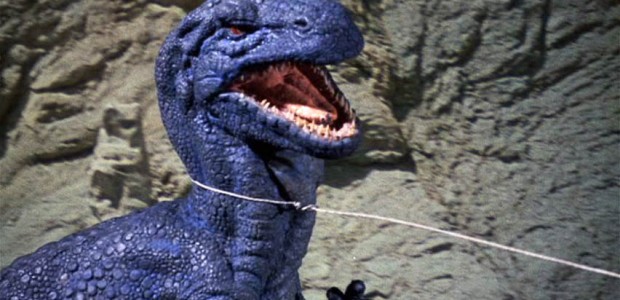
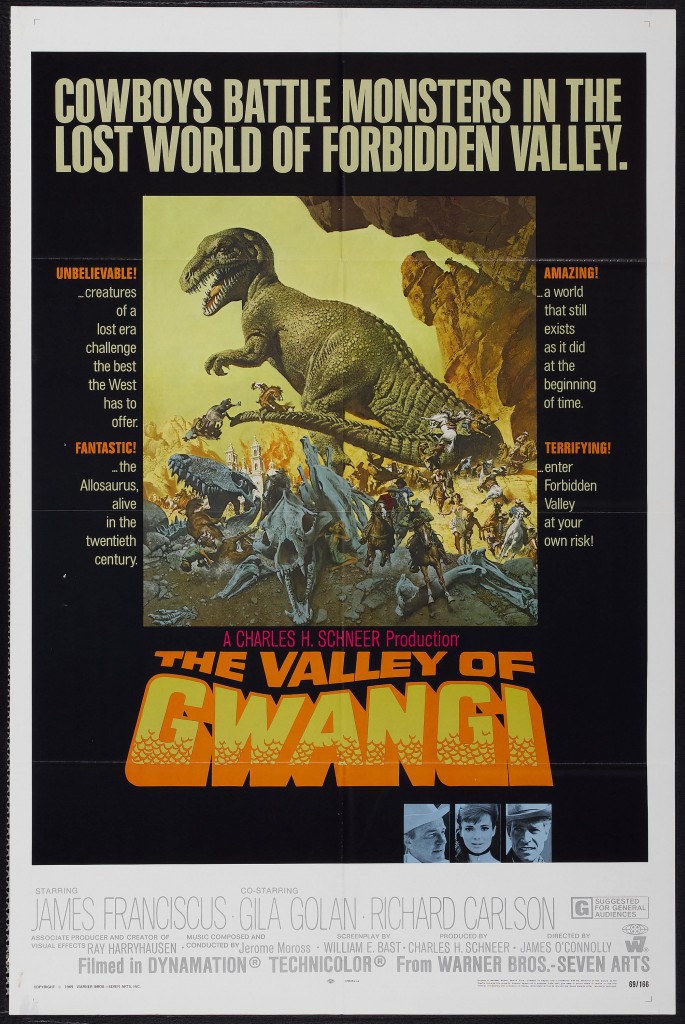
No Comments